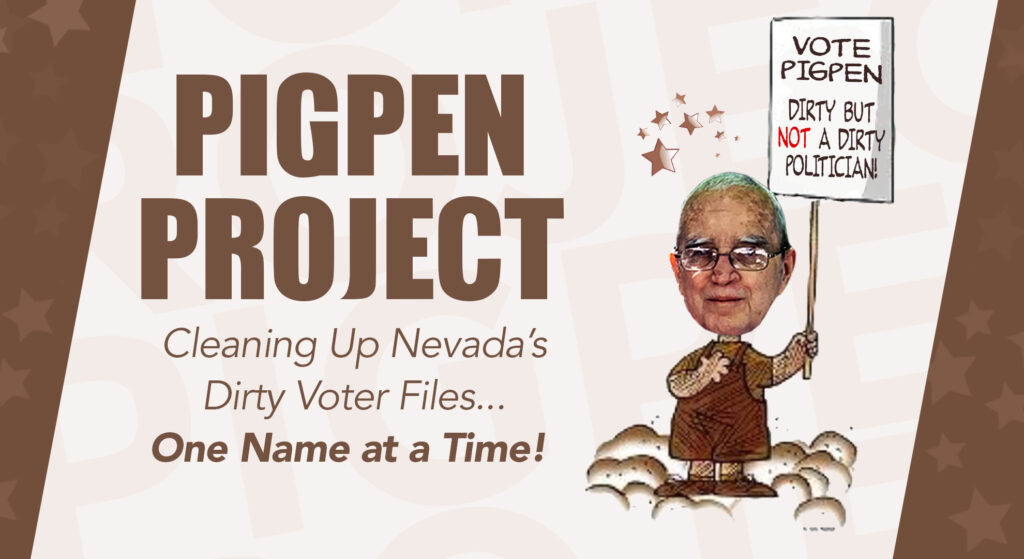
(Chuck Muth) – Make no mistake, ‘fake” registrations exist on voter rolls.
They include multiple voters of the same name and age, dead people, people registered at P.O. boxes, and people who have moved permanently but remain on the Active voter list at their old address.
It also includes voters registered at apartment complexes with no unit number.
This is one reason you see reports of stacks of mail-in ballots at apartment complexes. Fraudsters know when mail-in ballots are sent out by the election department, and then check each day to see how many ballots they can pick up from the lobby.
“Phantom” voters are individuals on the voter rolls who don’t exist. Or exist but don’t know they voted…or, more to the point, don’t know someone else voted for them.
Phantoms include people who are unlawfully registered to vote at P.O. boxes or businesses or vacant lots and somehow cast a ballot. They can also include individuals who moved from one state to another and yet someone else cast a ballot in their prior state without their knowledge.
That this occurs isn’t debatable. It does. The question is how widespread the problem is and what to do about it.
“Sleepers” are voters who legally registered to vote at some time but, for whatever reason, choose not to vote. Sleepers usually have no idea that someone is voting for them unless, for example, they show up to vote in-person and are told, “You already voted by mail.”
Sleepers can also include the elderly and others with cognitive impairments. They’re lawfully on the voter rolls but can’t even identify a close family relative, let alone who’s running for what office.
The danger is in “ballot harvesters” collecting ballots from such vulnerable individuals in assisted living facilities and nursing homes and voting on their behalf – which can be the difference in a close election.
“Hiders” are individuals who intentionally try to register at more than one address by making only slight changes in their registration applications. For example, on one registration application they use the last name “Owen” and on the second application at a different address they use the last name “Owens.”
They then vote both ballots – absolutely voting fraud.
It takes a lot of time and effort to identify and confirm phantoms, sleepers and hiders in the voter rolls. But it’s a critically important effort to assure as close to a perfect list of legal voters as possible BEFORE election day to stop ballots from being mailed to addresses where the voter no longer lives.
Because, as Scott McKay, contributing editor of The American Spectator, warns: “When those ballots go out in the mail,” there could well be someone “who’ll be there to collect them, fill them out, and send them back in or drop them off.”
There are existing laws against this practice for voters who vote in-person, but the new mail-in laws conflict with the clear intent of “electioneering” restrictions.
NRS 293.361 states that “a person may not electioneer for or against any candidate, measure or political party in or within 100 feet from the entrance to the voting area.” This to assure an individual’s secret ballot and deter intimidation or harassment.
Yet no such protection is afforded to those casting a mail-in ballot. A ballot “harvester” can sit right next to a voter, watch – if not assist – the voter in filling out their ballot, and then casting it themselves by dropping the ballot off in the mail or a drop-box.
This makes it easier to cast fraudulent ballots for phantoms, sleepers, and hiders. Which is why it’s so important to identify them and do what’s necessary to remove them from the voter rolls BEFORE election day, not after.
Coming up next: How to identify suspected bad registrations and what to do about it.
FAMOUS LAST WORDS
“Nevada has all-mail ballot elections meaning that all active registrants are automatically mailed ballots. Running an election by mail requires extremely accurate voter rolls to ensure ballots are reaching the intended voters. Unfortunately, Nevada’s voter rolls contain tens of thousands of errors. These errors include deceased and duplicate registrants and incorrect addresses on the voter rolls.” – Public Interest Legal Foundation
Mr. Muth is president of Citizen Outreach, publisher of Nevada News & Views, and founder of CampaignDoctor.com. You can sign up for his conservative, Nevada-focused e-newsletter at MuthsTruths.com. His views are his own.
